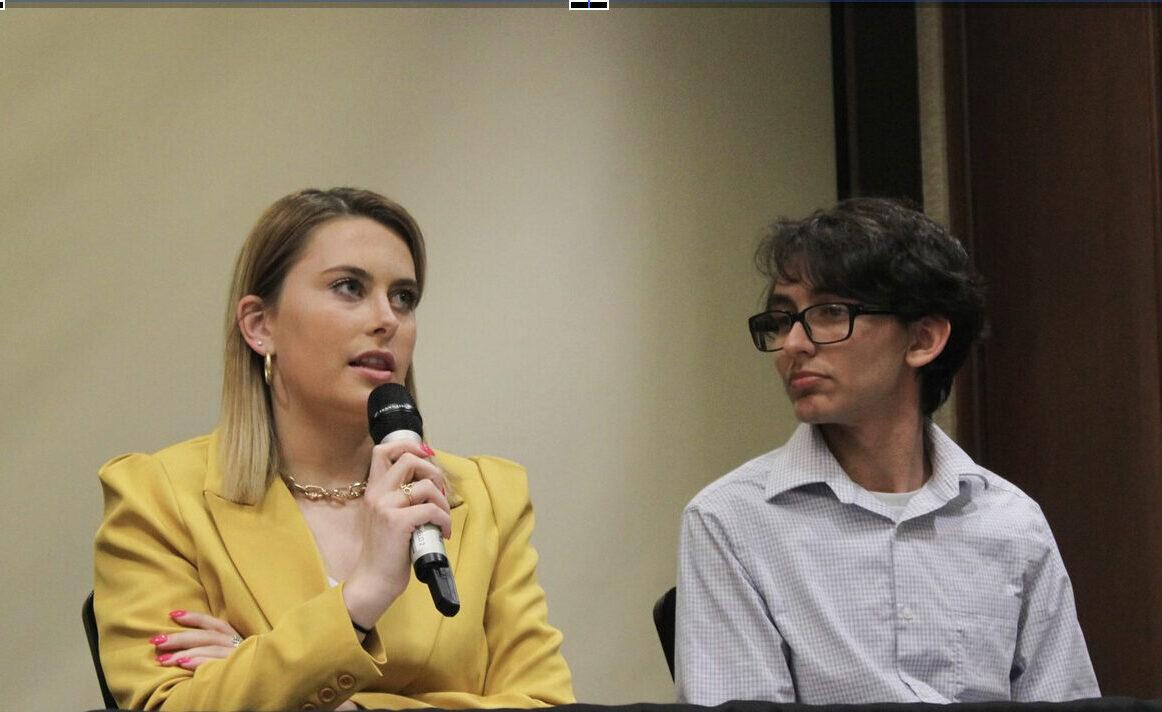TW: This column mentions sexual assault.
In my previous article about Show Me Mizzou and Maximize Mizzou, I questioned the clarity and feasibility of each slate’s campaign pillars while running for leadership in the Missouri Students Association. While both categories were initially weak, I was still hopeful that at least one of the slates would pull through by Sunday’s debate.
While each duo spoke passionately and shared additional details about their overall plans, Show Me Mizzou was a clear front-runner in terms of most big-ticket issues.
Once more, questions largely focused on topics like student safety, communication with administration, racism on campus and general goals for the future. Both slates agreed the MU Alert system requires improvement, racial minorities deserve more representation, mental health resources are inaccessible and sexual assault trainings would be beneficial for every student.
However, Show Me Mizzou presented more compassion for the student body, as well as substantial proof they were educated on issues pertaining to MU. When presidential candidate Josiah Mendoza spoke about representing minorities, he made it clear he would not substitute as a voice for his constituents. For example, even as a Latino man, he did not claim to speak for all minorities, inviting them instead to join him in working with the administration. This, in itself, would make their arguments more tangible to the adults who represent them.
Molly Miller, his running mate, also added that she wanted to work with Mizzou’s Legion of Black Collegians, otherwise known as the only Black Student Government in the nation. She recognized that they are just as important as MSA and emphasized sharing resources with them to amplify their voice in the student body.
Miller also spoke about her work on Vice Chancellor Bill Stackman’s special task force against sexual assault. One of her ideas was to establish in-person training on this subject matter, especially targeted at leaders of student organizations. Considering the lack of accountability with online training, her plan would likely be the best option for actively communicating important information with large groups of people.
Meanwhile, Maximize Mizzou stuck to the idea that they would “get their hands dirty” in working with these same groups. While showing up and talking with them is important in facilitating communication, this should have been a given. Without taking time to understand their concerns one-on-one, there will always be a missing link between students, student politicians and administration.
In general, both groups agreed there are issues with accessibility to mental health resources for MU students. While their stances seemed similar to me, I was interested in hearing about Maximize Mizzou’s personal experience with counseling. Presidential candidate Samantha Hole said it took months to get an appointment, while Vice Presidential candidate Daniel Daugherty noted how his counselor did not understand his viewpoint as a queer man. In illustrating these circumstances, they highlighted specific points about what changes are needed in MU’s mental health resources.
Although each slate had similar concerns, Show Me Mizzou did a better job with explaining how they will execute their campaign promises. Instead of speaking for the students, they promised to speak with us and the administrators to paint a clear picture of where changes need to be made. Their willingness to work with LBC is promising, especially considering how Black voices deserve amplification.
Meanwhile, Maximize Mizzou mostly painted general ideas that mimicked their past interviews with reporters for The Maneater. While this might be a misinterpretation, Show Me Mizzou has thus far proven themselves to be dedicated and compassionate toward the student body.
Cast your vote at vote.missouri.edu. Polls are open from Monday, March 14 at 6 p.m. to Wednesday, March 16 at 6 p.m.
Edited by Sarah Rubinstein | [email protected]














